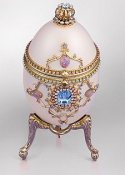- Varicose Veins
- Weakness in the knees & legs
That is the warning passed down from my relatives on my father’s side who claims that the source is a Doctor in the family who has made a lot of money treating such patients. I personally used to love eating cuttlefish Kangkong ( Jiu Hu Eng Chye ) and Sambal Kangkong. But after hearing about the warning ( approx 20 years ago), I started eating it sparingly! The thing is I cannot find any resource or link even that makes this factual.
What I have found however is that Kangkong is rich in Iron and other nutrients, so whether the above is true or not remains to be seen or rather verified.
Anyhow here are some facts on Kang Kong and Varicose Veins….
KANGKONG
Kangkong, Water Spinach; Weng Cai; Kangkong(M); Vallai Kinai(T);
Ung-Choi(C); Eng-Chai(H).
Ipomoea aquatica Forsk. (Convolvulaceae)
The plant’s smooth-surfaced leaves are either arrowhead-shaped, 5-6 inches long, or relatively narrow and pointed. Two major cultivar forms are grown. These being: Ching quat, the narrow leafed form most often grown in moist soils and Pak Quat, the arrowhead shaped form usually grown in aquatic conditions.
The plant is an herbaceous perennial aquatic, semi-aquatic plant of the tropics and sub-tropics. Alternate branches and leaves arise at the leaf axils of the trailing vine-like stems. The stems being hollow are adapted for floating in aquatic environments. Adventitious roots readily develop at nodes when in contact with moist soil and water. The succulent foliage and stem tips are light green in color. Flowering is favored by short days with the development of white and light pink flowers. Purple flowers develop in wild forms of Ipomoea aquatic. To obtain seed harvesting of the plants is stopped to allow developing flowers to mature, from which seed bearing pods form.
Other names. Kankon (Japanese); ung choi (Cantonese Chinese); toongsin tsai (Mandarin Chinese); ong choy, ungtsai, tung choy (China); kang kong (Filipino, Malaysian); kang kung, rau muong (Vietnamese); pak bung (Thai).

VARICOSE VEINS
What are Varicose Veins?
Varicose veins are abnormally swollen or enlarged blood vessels in the leg caused by the failure of the valves in the veins. Varicose veins and spider veins can be found in 35% of women and 20% of men above the age of 20.
What Causes Varicose Veins?
The reason varicose veins developed is not fully understood. The basic problem appeared to be that of damaged valves. Normally, the veins transport blood from the leg to the heart. In order for this to be possible, it has one-way valves to allow blood to travel in only one direction. In varicose vein, these valves have failed. Without the proper valve function, the blood tends to flow down (leaky), giving rise to blood pooling in the leg, thus causing the vein to bulge.
People who have varicose veins often have an inherited weakness of this valve. They may also give history of prolonged standing at work or multiple pregnancies, situations that will cause significant stress on the veins in the leg. These ultimately cause the veins to stretch and the valves to fail.
Symptoms Of Varicose Veins
These can be grouped into
- Asymptomatic-some patients has no symptoms at all apart from the veins being unsightly. They are usually very active physically and their active leg muscles compensate for the weakness of the vein function.
- Mild symptoms-aching and cramps in the leg, itchiness near the area of the veins and swollen ankle. All these are worse with prolonged standing.
- Severe symptoms and complications –leg ulcers, bleeding and thrombophlebitis
Prevention
This may not always be possible; however some simple measures and changes in our lifestyle can potentially delay the onset of varicose veins.
- Regular exercise will improve circulation and strengthen the veins. Focus on exercises that work your legs, like walking or running.
- Watch your weight. Obesity can put a lot of pressure on the legs and is known to cause spider veins.
- Do not cross your legs when sitting.
- Elevate your legs when resting or sleeping. To achieve this, the ankle should be place above the level of the heart. Try sleeping with 2 pillows under the feet, or lean on a couch and elevate the leg while watching TV
- Try not to sit or stand for long periods of time. When you have to sit for a long time, get up and take a walk every now and then. If you must stand for a long time, shift your weight from one leg to the other or do tip toeing exercises to improve circulation in the leg.
- Wear elastic support stockings as much as you can.
- Avoid wearing tight clothing and high heel shoes. They can constrict your waist and legs and impede circulation.
- Eat a well balanced diet with sufficient fibers and cut down on salt intake.


Filed under: Healthy Living, Notes To Remember, That's Life |















yah…cannot eat too much kang kong..and thanks for another great tip !! miss ya! *hugs*
Hey it is my greatest pleasure madame, and miss you and the gang too! *bear hugs*
is there any scientific explanation why too much eating of kangkong can cause varicose veins?
Dear Evelyn,
in my first paragraph I already mentioned I couldn’t find any scientific explanation if you will….however it is a known fact that eating too much of anything can create problems for our system.
Be healthy and safe!….cheers
There’s nothing in kangkong itself that will cause varicose veins, but people eat it with a lot of salt.
Well that is certainly one way of looking at it. Thanks for your contribution.
cheers mate! 🙂
Kangkong is rich in iron and fiber, excessive ingestion of which could lead to diarrhea due to the fibers and the body would only absorb enough iron for its need, the rest are excreted. Iron also could be an irritant to the gut. Varicose veins? Known causes are age where factors of wear and tear on the valves play a role, sitting or standing for long periods of time, familial predisposition, pregnancy in some women and obesity which can impede back flow of venous blood and, therefore, resulting in venous congestion in the legs.
One can get carried away eating kangkong, prepared in so many delicious ways, and in the process rice consumption goes with the territory, eventually leading to obesity, lol.
Thanks for taking the time to share mate! 🙂
Cheers
this is so stupid. my dad has varicose viens, and we eat kangkong almost everyday, and it even seems to be getting better… let’s not be too ignorant on what God really meant for us to eat…
Why so caustic? Yes you may have an opinion that differs from others but hey everyone is entitled to theirs. Perhaps also we should be careful in using the Lord God’s name too.
God Bless…
Many edible plants God gave to mankind, but certain vegetables cannot be excessively eaten. In the abscence of present day facts, we try to collect as much data to prove it scientifically. For example, if you are on blood thiining medication, can’t eat too much blood thinning fruits or plants.
Yes that is correct. The iron in leafy greens counteracts the action of anti-coagulants or what you called “blood-thinning medications.”
and by the way. doctors are full of crap… we dont need them… if you eat food that is meant for us to eat you will see that you will have no problem with yourself… dont eat things made by man, eat things made by God… even oil, it’s not good to cook with it…
lets consider that ALL EXCESSIVE INTAKE IS DANGEROUS TO OUR HEALTH! DUH?!
Did you mean that eating too much kangkong can lead to varicose vein???
answer please
That’s the idea conveyed though not scientifically proven.
Kangkong my elderly friend of 92 years old picks it each day and lightly blanches it in water and adds vinegar, a little sesame oil and calamansi with sometimes a tiny bit of meat or fish for flavor.
She looks like in her fifties and works better than most young men. Ha. She even smokes cigars. She also eats lots of other healthy leaves, bark and stuff and healthy as can be. But the Kangkong she eats a lot of it everyday and no veins popping out anywhere.
Great to hear it….cheers
I just recently read of a connection between too much iron and aricose veins. I’ve been taking an iron pill for a few weeks due to my doc’s recommendation and just started aching in my legs in a terrible way that usually only happens when I’m pregnant. Since I knew iron effects the consistency of blood, I wanted to see if it was causing the pains. I read that a deficiency in vitamin E leads to varicose veins and that iron supplements often destroy the vitamin E within the body. I don’t know if the extra high level of iron in Kangkong would destroy vitamin E in the body like an iron supplement would, but it’s a thought. Here’s the website where I read about it: http://www.webnat.com/articles/varicoseveins.asp
Thanks for sharing dear…
Thank you for that Tess. The idea that iron might be at the root of the problem is an interesting one and I will bear this in mind. In my case, I have a patch of spider veins on my outer thigh, around the backs of my knees, on my chest and on my face. The odd thing is, I would consider my diet to be fairly healthy. There is definitely more to the problem than simply lack of exercise and hereditary factors also. At the moment, I am inclined to believe that the amount of sugar that I consumed over the past few years,by way of the small tubs of fruit I ate on a daily basis, as well as rich fruit smoothies I drank in generous-sized glasses may have been a factor that led to the development of my spider veins. I also would have timed my consumption of these vitamin c-rich drinks to coincide with my meals in order to maximise iron absorption, thinking I was doing myself a favour. In addition to this, the meals themselves largely consisted of meat with some green veg thrown in to further top up my iron levels.
In a nutshell, I don’t know what the exact cause of my spider veins are but I strongly suspect it is dietary. It would be interesting if all the spider vein / varicose vein-ridden people of the world could put forward their diets for comparison so that common strands can be identified. I certainly believe that the quest for obtaining a response to this is going to have to come from the ordinary folk, as opposed to the “leading” doctors and physicians in these fields because after all, their industries are making large sums of money from our ignorance. I would not be surprised in fact if some of the advice they churn out about preventive measures / cures may in fact be designed to have the opposite effect, e.g. As in the example of eating more fruit that I referred to earlier.
Call me cynical!
I have spider veins and blood tests show normal iron levels in my body
i will continue to eat kangkong and a lot of it!!! the key is to eat a balanced organic diet and drink plenty of water, no supplements, no GMO, no juices/sodas whatsoever